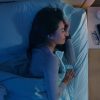The science of sleep is fascinating and has interested humankind for centuries. In 350 B.C., Aristotle wrote a pivotal philosophical essay entitled, “On Sleep and Sleeplessness.” Millennia passed, and still, we didn’t have an answer about sleep. It wasn’t until 1924, when Hans Berger, a German psychiatrist invented the machine – the electroencephalogram – that would change the way science views sleep. The device would record electrical activity in the brain when patients would sleep. Over the past few decades, science has developed imaging machines that allow scientists even more in-depth analysis of the brain’s inner workings.
We know that sleep is vital to both our mental and physical health and well-being. We also know that our sleep-wake pattern is a critical feature of our anatomy and biology, much like how nature relies on the cyclical patterns of the sun and moon rising and setting.
In 2017, the Nobel Prize in medicine was bestowed on three scientists that spent several decades identifying the molecular clock inside our cells that keep our bodies in sync with the sun. When humans alter this circadian rhythm, research shows that we put ourselves at risk for many illnesses, such as dementia, heart disease and even diabetes.
Today’s society is vastly different from the archaic world Aristotle knew well. Today, a full night’s sleep is rare, as is receiving an old-fashioned handwritten letter from a friend. Ushering in today’s modern technology and electronic gadgets humankind turns to sleep pills to cure insomnia and drinks caffeine like it’s going out of style to stay awake. On a good night of sleep, the human bodies cycles through approximately four to five times of sleep stages.
Fast forward to modern times, and the U.S. Centers of Disease Control and Prevention says that nearly 80 million Americans suffer from chronic sleep deprivation, which means they get fewer than the recommended minimum seven hours of sleep nightly. Sleep deprivation results in fatigue, which contributes to nearly 1 million auto accidents annually and even more severe issues, such as medical errors.
Our ancestors went to bed with the moon and rose with the sun, which is vastly different from today’s chaotic society that has dozens of artificial light sources keeping us up longer. Whether it’s Smartphones, fluorescent lighting, televisions or other electronic devices, society as a whole is beginning to experience less REM and more restlessness.
The link between electronic devices and sleeplessness is undeniable. People surround themselves with electronic devices and overstimulation non-stop on a daily basis. Think about smart houses and smart cars – the wave of the future will be a genuinely enlightened electronic age. However, that doesn’t solve the insomnia dilemma that seems to plague so many people worldwide.
Enter BluTech Lenses. While it’s nearly impossible to escape our world of electronic devices unless we plan a careful off the grid exit, we can reduce the harmful effects electronic devices have on our bodies. Since electronic devices are responsible for emitting harmful blue light rays that subconsciously give our bodies mixed signals to stay away longer instead of slumbering when the sun sets, BluTech has found a solution. BluTech has harnessed the power of today’s modern scientific research and created a lens that will help to block and filter these rays that keep us awake longer and keep our dreams at bay.
Available by prescription or at select eye care retail centers, BluTech Lenses help to block out electronic devices harmful blue light rays, which means that more people can stay up to date on technology while getting a good night’s rest.
Find BluTech Near You





